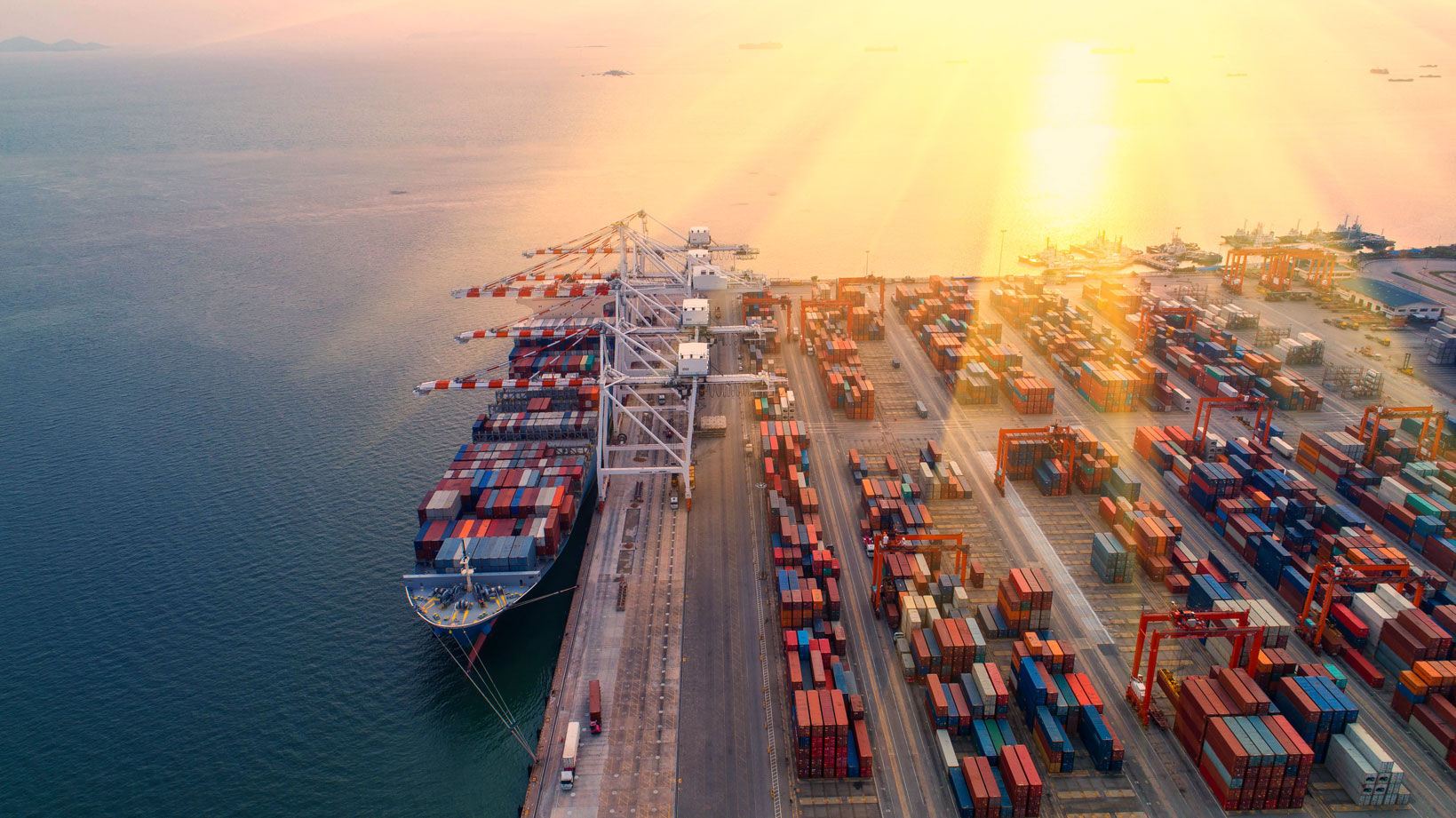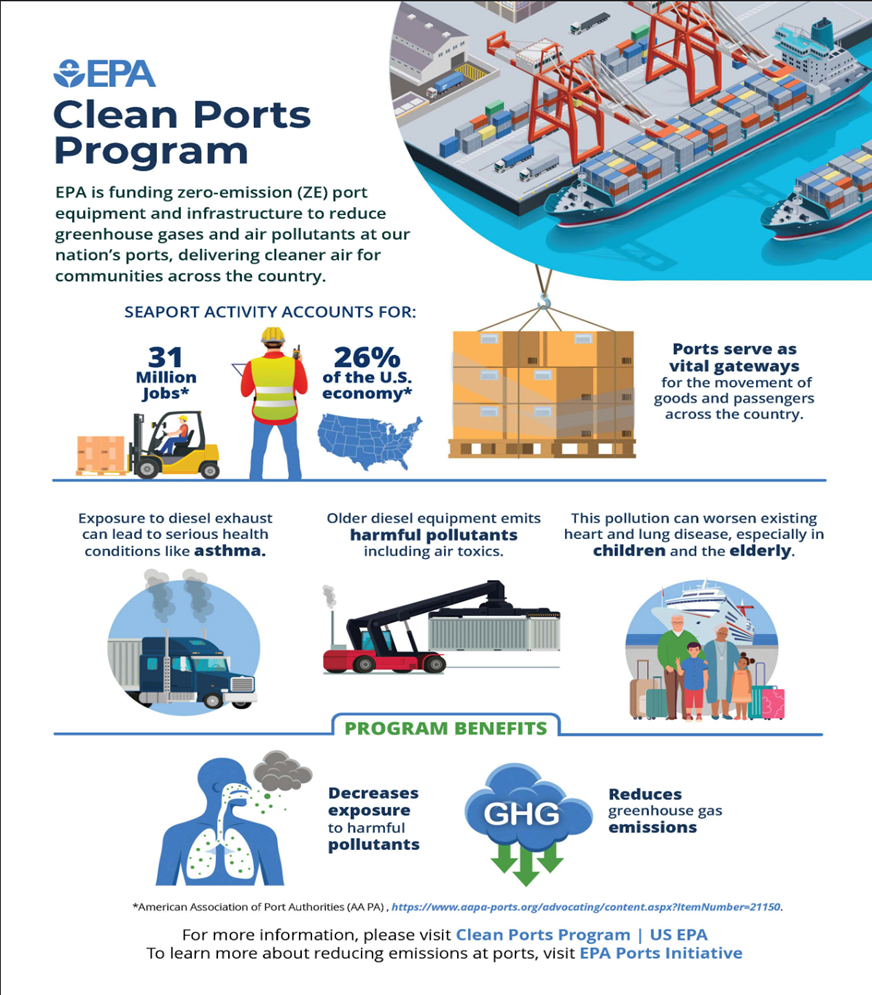Clean Ports & Data Tracking

The sheer volume and variety of ships, equipment, and operations that occur at port facilities creates significant pollution. The diesel engines from vessels, cranes, and other cargo handling equipment emit pollutants such as sulfur oxides (SOx), nitrogen oxides (NOx), hydrocarbons, particulate matter (PM), and carbon dioxide (CO2) and carbon monoxide (CO). Ports also generate various types of waste, including solid waste, wastewater, and hazardous materials. Improper disposal of these wastes can lead to pollution of nearby land and water bodies.
In recent years, efforts to mitigate port-related pollution include implementing cleaner technologies for vehicles and equipment, using shore power to reduce emissions from ships while docked, enforcing regulations on emissions and waste disposal, and promoting sustainable practices throughout port operations.
The Clean Ports Program goals includes:
- Building a foundation for the port sector to transition over time to fully zero-emissions operations, positioning ports to serve as a catalyst for transformational change across the freight sector.
- Reducing diesel pollution (criteria pollutants, GHGs, and air toxics) in near-port communities.
- Helping ensure that meaningful community engagement and emissions reduction planning are port industry standard practices.
Ports have both moving and measurable emissions reduction targets, but often lack a single source of record for tracking. Paper-based Criteria Air Pollutant and Greenhouse Gas Inventories are pervasive in the industry. Handwritten manifests are often used for regulated wastes. Locus Technologies allows your data to be digitized and organized, resulting in improved emissions, water, and waste data.
Overall, ports play a crucial role in promoting sustainable maritime transportation and minimizing the environmental impact of global trade. With net zero waste and carbon dioxide pledges becoming more popular, ports will be held accountable to show their data. Let Locus Technologies be your source for all environmental record keeping.



